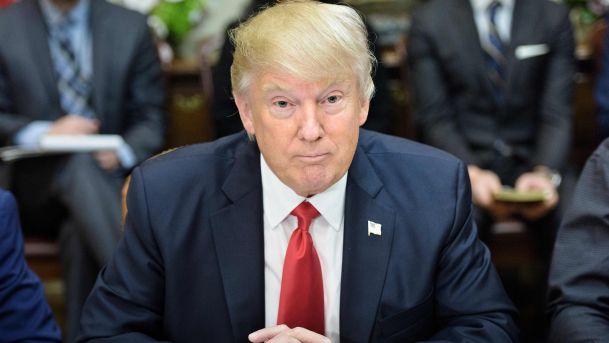Report: White House Blocked Holocaust Statement That Explicitly Mentioned Jews
State Department drafted statement specifically naming Jewish victims to mark Holocaust Remembrance Day, but Trump's White House replaced it with the now controversial statement omitting Jews entirely.

The White House nixed a statement that the State Department had drafted to mark International Holocaust Remembrance Day that specifically mentioned Jewish victims and replaced it with the now controversial release that omitted Jews entirely, Politico reported on Thursday.
The statement, reportedly crafted by Boris Epshteyn, a special assistant to President Donald Trump, was a marked departure from past statements by U.S. presidents commemorating the Holocaust, which included a clear reference to the loss of six million Jewish lives and to the Nazi regime's unique focus on the Jews.
>> Get all updates on Trump, Israel and the Jewish World: Download our free App, sign up to Breaking News Alerts, and Subscribe >>
People familiar with the matter told Politico that the State Department's Office of the Special Envoy on Holocaust Issues wrote a statement that explicitly included and commemorated Jewish victims, echoing previous statements.
But according to the report, a White House official said the State Department had not been asked to draft its own document. According to the official, the White House had told the State Department not to issue its own statement because it would come after 7 P.M., adding that the White House had not seen the State Department's draft until it released its own.
The statement, in which Trump decried the "horror inflicted on innocent people by Nazi terror," was praised by Richard Spencer, the leading ideologue of the so-called alt-right. Spencer hailed the statement's omission, which he dubbed the "de-Judaification" of the Holocaust, as an important, perhaps revolutionary step. He dismissed Jewish responses to the statement as “kvetching,” using a Yiddish term for complaining.
Israel's ambassador to the United States slammed the statement in a tweet: "After the Holocaust took away so much from the Jews, we must not take the Holocaust itself away from the Jews."
Jonathan Greenblatt, the CEO of the Anti-Defamation League, called the statement "puzzling and troubling," adding that past administrations – both Democratic and Republican – specifically mentioned the Jewish aspect when commenting on the Holocaust.
In an attempt to explain the statement, the White House doubled down on its omission, saying that the reason for the unusual wording was that non-Jews were also among the victims of the Holocaust. "Despite what the media reports, we are an incredibly inclusive group and we took into account all of those who suffered," Hope Hicks, a spokeswoman for the White House, told CNN.
Following the spokesman's statement, two leading U.S. right-wing Jewish groups, both of which strongly supported Trump during his campaign, denounced the statement. The Republican Jewish Coalition called the omission "unfortunate," while the president of the Zionist Organization of America expressed his "chagrin and deep pain."
Rabbi Marvin Hier, the founder and head of the Los Angeles-based Simon Wiesenthal Center who delivered a benediction at Trump's inauguration, called the statement a mistake. The Wiesenthal Center called for the White House statement to be "updated to specifically mention the 6 million Jewish victims of the Nazis."
Want to enjoy 'Zen' reading - with no ads and just the article? Subscribe today
Subscribe now



















